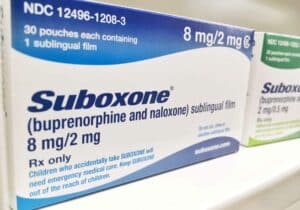As a parent, when you discover your son grappling with mental health issues, a myriad of emotions take over—worry for his well-being and concern on how to extend support encapsulate your thoughts. While it’s beyond your capacity to provide a complete cure, your involvement is pivotal in ushering him towards a hopeful and healthier tomorrow.
Recognizing Mental Illness in Your Son
Acknowledgment of the issue at hand is the cornerstone to aiding a son in a mental health crisis. However, it’s easier said than done. Some mental disorders manifest through glaring symptoms, while others lurk subtly.
You need not be a mental health connoisseur to notice the signs indicating your child might be in distress. What matters most is vigilance towards significant behavioral changes. Unusual actions such as the following can be indicative of a mental health disorder:
- Drastic mood swings or change in attitude
- Irregular sleep patterns
- Unusual eating habits
- Unintentional weight gain or loss
- Neglect of personal grooming and hygiene
- Abnormal levels of energy
- Display of anger, aggression or violence
- Loss of interest in erstwhile enjoyable activities
- Isolation from family and friends
- Problems with focus and concentration
- Frequent absenteeism from school or work without justification
- Decline in performance at school or work
- Frequent complaints of headaches, stomach aches, or other physical discomforts
- Expressions of despair or wishes to disappear
If your son demonstrates such signs or grapples with more severe symptoms like hallucinations or delusions, it’s crucial to have him evaluated by a certified mental health professional.
Supporting Your Son through Mental Illness
The piercing reality of not being able to alleviate your son’s anguish is distressing. Nonetheless, as reiterated earlier, your role is instrumental in keeping him safe and linking him to beneficial services that could enhance his life’s quality and essence. Here are four actionable steps towards achieving this:
- Educate Yourself: If your son has been diagnosed with a mental disorder, delve into understanding the condition. In case he exhibits symptoms but lacks a diagnosis, research the potential causes and impacts of these symptoms. The more you’re informed about his experiences, the better positioned you are to offer significant aid.
- Engage in Conversation: Dialogue surrounding mental health can be daunting, yet it’s crucial:
- Express your concerns and unconditional support to your son.
- Address the observable symptoms without blaming.
- Discuss treatment possibilities when appropriate. Prepare for potential denial or anger, and plan for calm reassurances. It’s a process; multiple conversations may be needed.
- Set and Uphold Healthy Boundaries: While your son’s health is a priority, self-care is equally essential. Avoid enabling behaviors that could worsen his mental health condition. Establish clear boundaries, and adhere to them even if faced with adverse reactions.
- Seek Professional Guidance: Consulting a mental health professional can equip you with insight into your son’s condition, advice on boundary-setting, and strategies for encouraging him towards seeking help, even if he’s resistant initially.
Remember, your ability to support your son hinges greatly on your well-being. Seeking professional help ensures you’re well-positioned mentally to offer the requisite support to your son.
Teen Intensive Outpatient Programs (IOP)
Teen Intensive Outpatient Programs (IOP) serve as a crucial stepping stone on the path towards recovery and balanced mental health for your son. IOPs provide a structured therapy environment while allowing the continuation of his daily activities. At the Iris Wellness Group, our Teen IOP in Chattanooga, TN focuses on equipping your son with coping strategies, resilience training, and community support to navigate through his mental health challenges. It’s a conducive setting where he can foster self-awareness, improve interpersonal skills, and work towards overcoming the hurdles that mental health disorders might present. The blend of group, individual, and family therapy sessions ensures a holistic approach to mental health management. Our dedicated team of professionals is committed to providing personalized care that caters to the unique needs of every teen, setting the foundation for lasting recovery and a promising future.
Discover Mental Health Treatment in Chattanooga, TN
Iris Wellness Group extends a range of tailored treatment solutions for teens and adults in Chattanooga, Tennessee, contending with mental health disorders like anxiety, depression, and bipolar disorder. Our center embodies a sanctuary where your son can access personalized care and comprehensive support crucial for his journey towards wellness.
Explore more or schedule a free mental health assessment for your son on our admissions page or reach out to us at your earliest convenience. Your proactive step today can herald hope and healing for your son.










